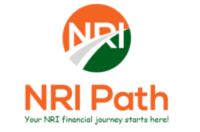
As a financial professional, one of the most common misconceptions I hear is that estate planning is only for people with significant wealth. The truth is that estate planning is for everyone. Whether you own a home, have a savings account, or simply want to make sure your loved ones are cared for, an estate plan gives you the control and clarity you need over your future.
Think of estate planning as creating a roadmap. It tells your family, the courts, and even your doctors how you want your affairs handled both during your lifetime and after. Without this roadmap, decisions may be made for you, often in ways you would not have chosen.

Why Estate Planning Matters
When I sit down with clients, I emphasize that estate planning is not just about transferring money. It is about protecting the people and the legacy you care about most.
Protecting your family
With a will in place, you decide who receives your assets and who will care for your children. Without one, the courts step in, and their decision may not reflect your wishes.
Avoiding family disputes
I have seen families divided because a loved one did not leave clear instructions. Estate planning provides clarity and helps prevent unnecessary conflict.
Saving time and money
If you do not have an estate plan, your assets may go through probate. This process can be expensive, stressful, and time-consuming. A clear plan can reduce costs and delays, giving your loved ones faster access to what they need.
Planning for unexpected events
Life is unpredictable. If you were ever unable to make decisions due to illness or injury, a power of attorney or healthcare directive ensures someone you trust can step in on your behalf.
Peace of mind
The greatest benefit is the sense of security that comes with knowing your affairs are in order. You can focus on living today while knowing tomorrow is taken care of.
What Goes Into an Estate Plan
A solid estate plan usually includes:
- A will that outlines how your assets will be distributed
- A trust to help manage and transfer assets smoothly
- Powers of attorney for both finances and healthcare
- Beneficiary designations on accounts like retirement plans and life insurance
- Healthcare directives that express your medical preferences
Each of these tools plays a different role in protecting your financial and personal wishes.

How to Get Started
Getting started is easier than many people think. Begin by listing your assets, deciding who should inherit them, and identifying people you trust to act on your behalf if needed. From there, you can put the right documents in place.
For many of my clients, I recommend FreeWill. FreeWill is a trusted online platform that allows you to create a legally valid will at no cost. In less than 20 minutes, you can complete your will, protect your loved ones, and gain peace of mind. One of the advantages of using FreeWill is that you can update your plan as life changes, such as when you buy a home, get married, or welcome children.
It is simple, accessible, and one of the easiest ways to take your first step in estate planning.
For complicated estates like families with special needs, real estate assets, family disputes, business, etc., it is recommended to use estate tax attorney.
Final Thoughts
Estate planning is not about how much money you have. It is about taking care of your loved ones, protecting your legacy, and ensuring your wishes are respected. By acting now, you spare your family unnecessary stress and provide them with a clear path forward. With resources like FreeWill available, there has never been a better time to get started.
